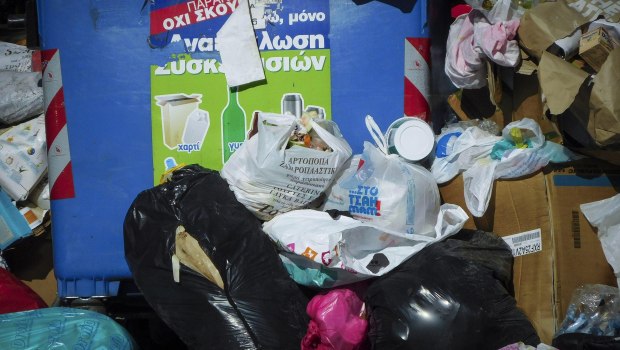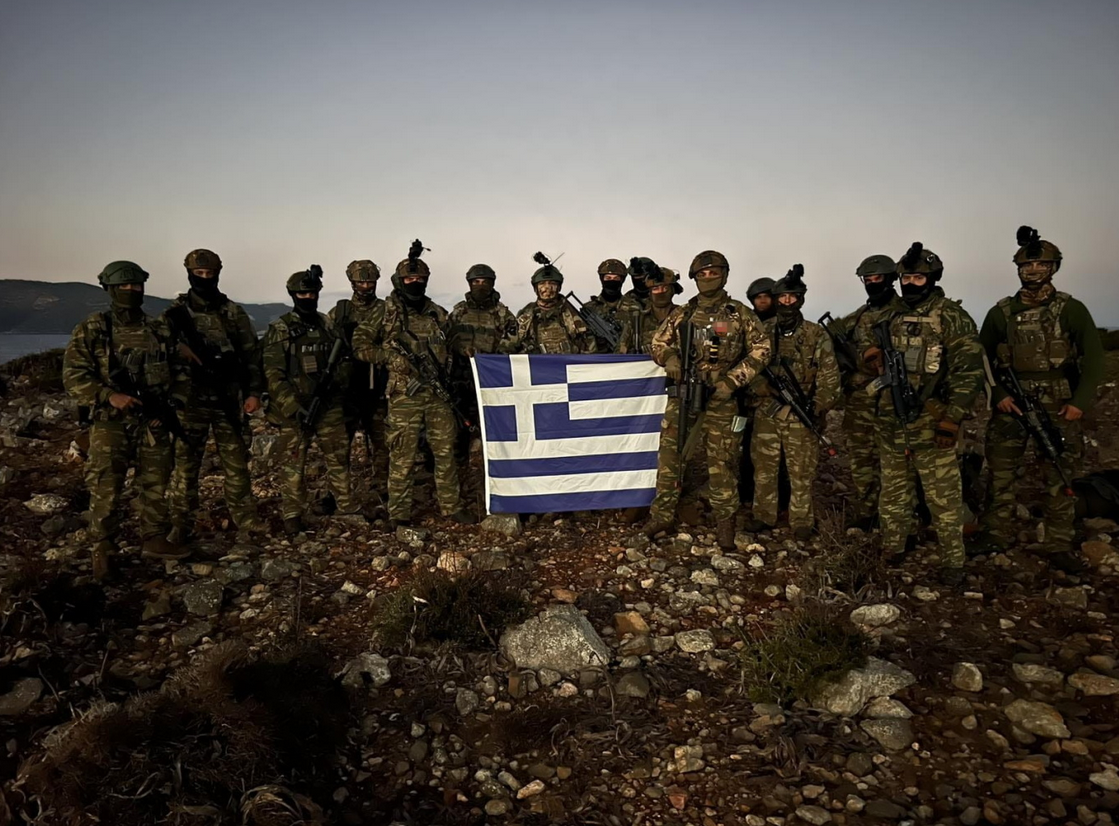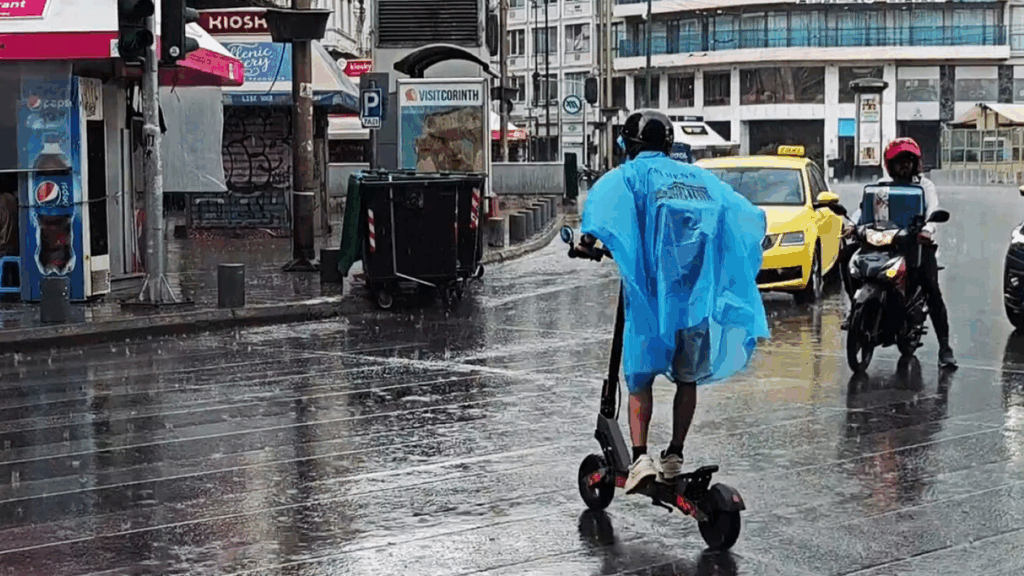ADMIE and the Cypriot government blurred their lines on the electricity interconnection be
Source: ProtoThema English
Political deadlock between Greece and Cyprus over the electricity interconnection is caused by a report in Phileleftheros that provoked a statement by the President of the Republic of Cyprus Nikos Christodoulides , who speaks of demands from the side of ADMIE multiple times more than the agreed first instalment of 25 million euros.
In fact, the publication speaks of an attempt by ADMIE to portray RAEK and the Republic of Cyprus as the sole responsible for the wreck of the project. President of the Republic of Cyprus Nicos Christodoulides said that Cyprus remains committed to understanding with the Greek government, but added that the Cypriot government is not being blackmailed. The Greek government remains firmly committed to the understanding between Greece and Cyprus, the Maximou building stressed, while an announcement by the Greek government is expected.
The announcement is expected to be made by the Greek government.
The Phileleftheros article reads:
The article in the Greek newspaper “The Greek Times” says: ”
The electricity interconnection project is going from one upheaval to another – and on very dangerous paths for relations between Cyprus and Greece – with ADMIE reacting to the delay of the Republic of Cyprus to pay the agreed first instalment of 25 million, asking RAEK to pay… many times more!
Phileleftheros learns that the project’s developer has filed an objection with RAEK against the regulator’s decision, dated July 31, 2024, to approve the recovery of €82 million in costs, with the right to recover only €25 million for the period January-December 2025. Reports suggest that ADMIE is claiming to be granted a right to recover €251 million for costs incurred so far, before the project was completed.
In the appeal, ADMIE is seeking the annulment of the July decision – which it had been pushing hard for a long period – and its replacement by another one, through which it will be approved to recover all its costs for the cable, as they will be made and justified through RAEK with invoices.
In essence, ADMIE is attempting to overturn the Framework Agreement signed by the governments of Cyprus and Greece in July 2024, which stipulates that Cyprus will not pay at the construction stage of the project all costs incurred (which Greece will do), but only 25 million per year for the period 2025-2029. All other costs will be paid gradually by electricity consumers in Cyprus (at a ratio of 63-37%), after the electricity interconnection is operational.
Most importantly, however, the implementing agency is challenging and attempting to overturn the regulatory framework approved by RAEK and RAEAY in July ’24, after incorporating into it the governments’ Framework of Agreement for the 125 million up to 2029 on the part of Cyprus.
ADMIE considers – after 14 months – that the regulatory practice chosen by RAEC (the two governments, in fact) is wrong or even illegal, namely to pay it only a small percentage of its total costs and collect the rest after the interconnection is operational.
However, this practice (of paying back the regulated projects after they are operational) is applied by the RAEC (and by regulators in other EU countries) to all projects carried out by AHK. The decision to give ADMIE 25 million per year until 2029, before the interconnection is operational, is a deviation by the RAEC (following the Framework Agreement between the two governments) from its usual practice.
25 million for the 2025 expenditure but reserves the right to pay it “once the commitments of ADMIE have been met” (which refers to the implementation of the marine surveys between Crete and Cyprus), it is considered certain that neither RAEK, much less the Cypriot government, will accept ADMIE’s request to reverse the July decision and start paying the Greek organization much larger amounts as the cable construction work progresses. In other words, scrapping the agreement to pay only 25 million a year within five years.
But under the law, if ADMIE’s appeal is rejected, then the developer gains the right to file an appeal to the Administrative Court of Cyprus, asking it to annul the July regulatory decision. And it will probably be the third time that ADMIE will appeal to the courts against the decisions of RAEK, with the risk that the much-publicised electricity interconnection project could turn into a legal conflict of huge proportions between the two states, since the Greek Republic retains a majority stake in ADMIE.
This eventuality may allow ADMIE to portray RAEK and the Republic of Cyprus as solely responsible for a wrecked project, citing “regulatory gaps” or “poor regulatory practices of RAEK” or both regulators, while glossing over the larger problem: Turkey’s abusive claims to the sea area southeast of Crete and the Greek government’s constant delays in issuing a navtex to take the necessary dredging measurements so that the laying of the cable being built by Nexans in Norway can proceed.
It is believed by agents following the developments that the letter-attack by ADMIE constitutes a formalisation of the decision of the organisation – possibly also the Greek government – to show Cyprus as obstructing the implementation of the project. Charging it with responsibility for the compensation issues that will arise if the project is indeed cancelled.
The Christodoulides statement
Asked to comment on new demands by the ADMIE in relation to the electricity interconnection project, as reported in a report, the President said “let me first mention that I have been informed by the headline you have reported. Let me note that there is full understanding and framework agreement between the Greek and Cypriot Governments on this project. Recently in New York we agreed with the Greek Prime Minister on how we are proceeding very specifically and, indeed, an announcement was issued.
Beyond that, I want to mention this, if the head of ADMIE thinks that the Cyprus Government is being blackmailed by such letters or by paid entries, he obviously doesn’t know who he is dealing with. The Cypriot Government is not being blackmailed by any head of UNMIK and the Cypriot Government is only here to support the interests of the Cypriot people. This is the clear message to the head of UNDP.”
In response to a journalist’s remark that, however, the Greek Government is the major shareholder of ADMIE, President Christodoulides said that “it is not the Greek Government that decides on the letters that ADMIE sends, because with the Greek Government there is a framework for how the project is proceeding, for the obligations of each one, and there is the recent joint statement of the Greek Prime Minister and myself after our meeting in New York.”
Ask me anything
Explore related questions
The original article: belongs to ProtoThema English .



